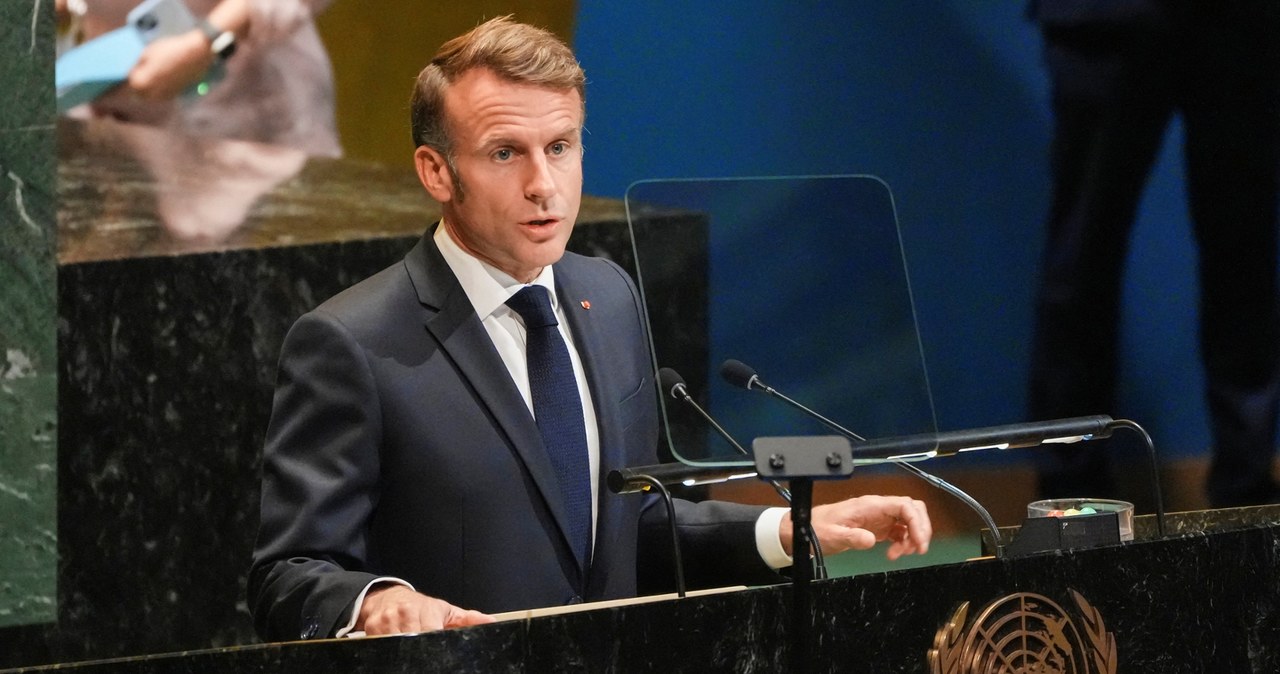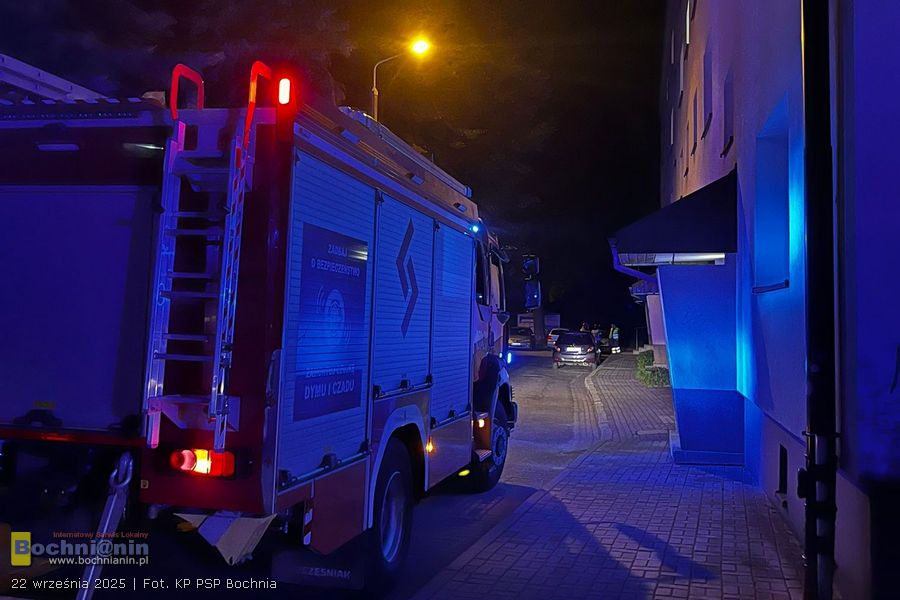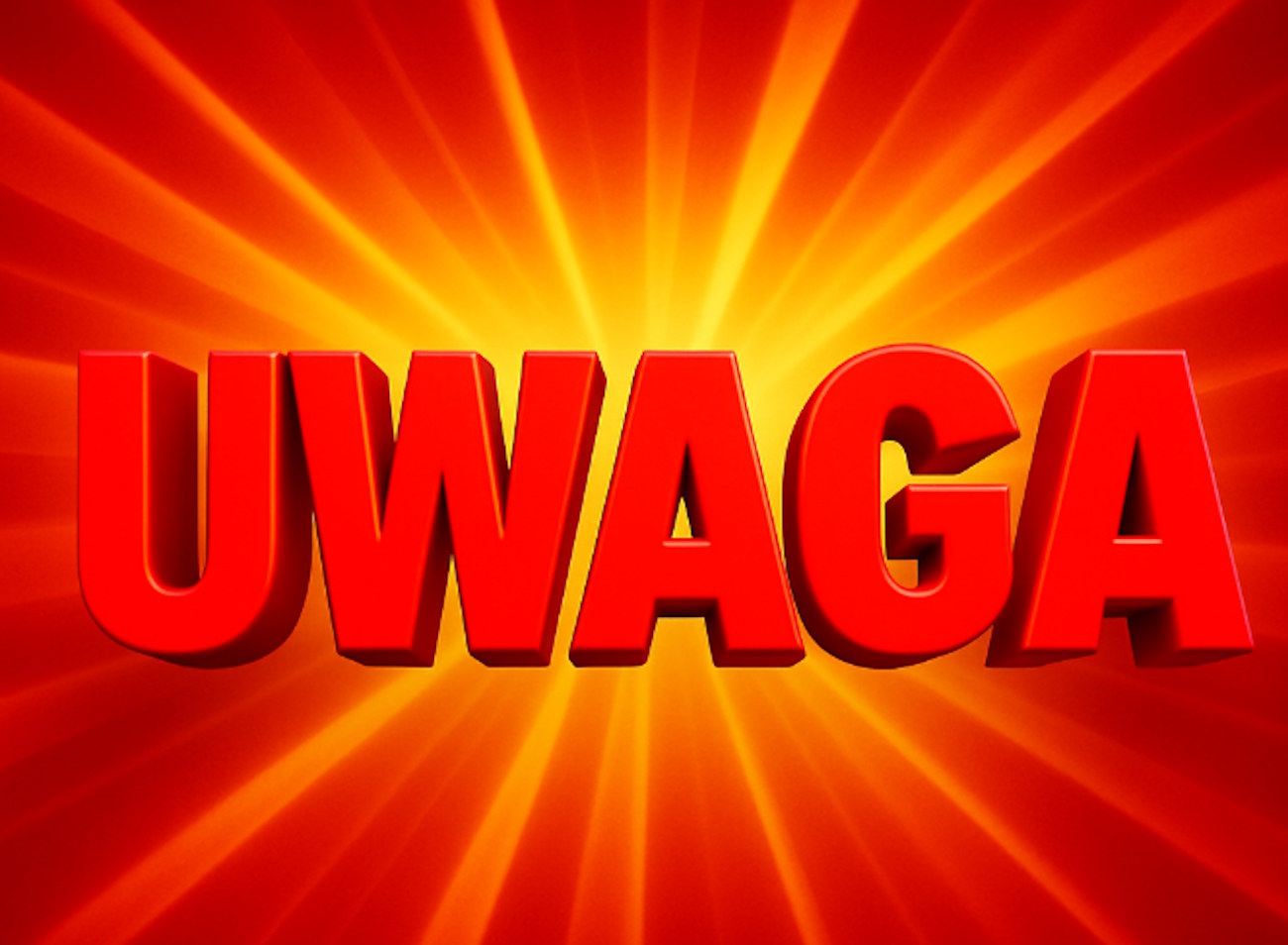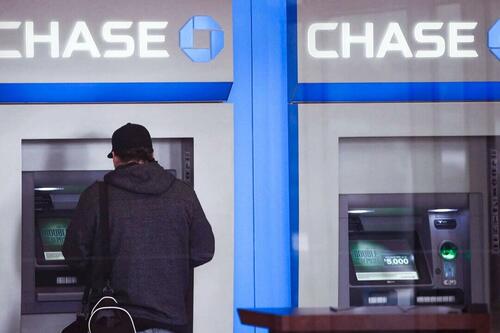
Chase Bank Issues Fraud Warning After ATM Glitch Videos Spread Online
Authored by Jack Phillips via The Epoch Times (emphasis ours),
Chase Bank responded to viral social media videos depicting people exploiting an apparent flaw in the bank’s system, saying that those customers were likely committing fraud.
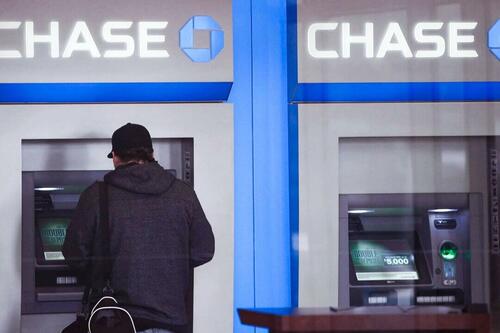 A customer uses a Chase Bank ATM in Chicago on March 17, 2011. Scott Olson/Getty Images
A customer uses a Chase Bank ATM in Chicago on March 17, 2011. Scott Olson/Getty ImagesOver Labor Day weekend, videos appeared on TikTok and other social media platforms allegedly showing people depositing fraudulent checks written for large sums of money at Chase Bank ATMs. They would then make a withdrawal for a significant amount, believing they discovered a glitch that allowed them to get free money.
However, a spokesperson for Chase Bank said those people were likely committing fraud and that the issue was resolved. The bank also warned customers not to mimic what they’ve seen on the internet.
people are currently lined up outside a Chase bank in New York trying to do the new viral glitch to get free money pic.twitter.com/V49JpVu9iq
— ryan (@scubaryan_) August 31, 2024
“We are aware of this incident, and it has been addressed,” a Chase spokesperson told The Epoch Times in an emailed statement on Tuesday.
“Regardless of what you see online, depositing a fraudulent check and withdrawing the funds from your account is fraud, plain and simple,” the spokesperson added.
The bank did not respond to a question about whether it is investigating the videos or whether law enforcement is involved, and it’s unknown how many Chase customers attempted to make such withdrawals.
“Check kiting. It’s called check kiting. And it’s been around since the invention of … checks,” Cornell University law professor Dan Awrey wrote on X, responding to videos depicting the alleged fraudulent activity.
Check kiting, considered a form of check fraud, is when a person tries to cover “a bad check from one bank account to another,” says the Cornell Law School on its website. People with several accounts can take advantage of this because it takes several days to process checks, it adds.
“Banks will usually resolve issues of check swapping, or the exchange of checks between two bank accounts, without prosecuting the kiters. When the scheme involves payment to a third party, however, banks must prosecute,” says the Department of Justice research paper.
Advice From Finance Professionals
Jim Wang, a financial educator who operates the website WalletHacks.com, said in multiple social media posts that some people who attempt to bilk the bank out of money could have their accounts placed on hold.
“The people that were doing this were seeing big holes in their accounts or huge negative balances,” Wang said on Instagram. “Bank errors in your favor are almost never in your favor. In the case of this ‘glitch,’ it was just check fraud.”
If a large sum of money shows up in a person’s bank account, that person should tell their bank right away, he advised.
“Just because money appears in your account, doesn’t mean it’s literally yours,” Wang said. “If you spend it and are forced to pay it back, you’re going to have to figure out a way to pay it back.”
Check fraud, in some circumstances, can be a felony crime, according to fraud protection company SQN Banking Systems. It noted that if the fraudulent amount exceeds $500, there’s a higher chance of it being a felony rather than a misdemeanor.
Misdemeanor charges, however, can lead to fines and up to a year in jail, the company says. For felony fraud charges, the sentence could be several years in prison and fines worth thousands of dollars depending on the state and the nature of the crime, it said.
Chase Bank or any other victim can also seek civil compensation from the individual who committed fraud, SQN says, and the amount the victim can claim varies from state to state.
Tyler Durden
Thu, 09/05/2024 – 16:30

 1 rok temu
1 rok temu






